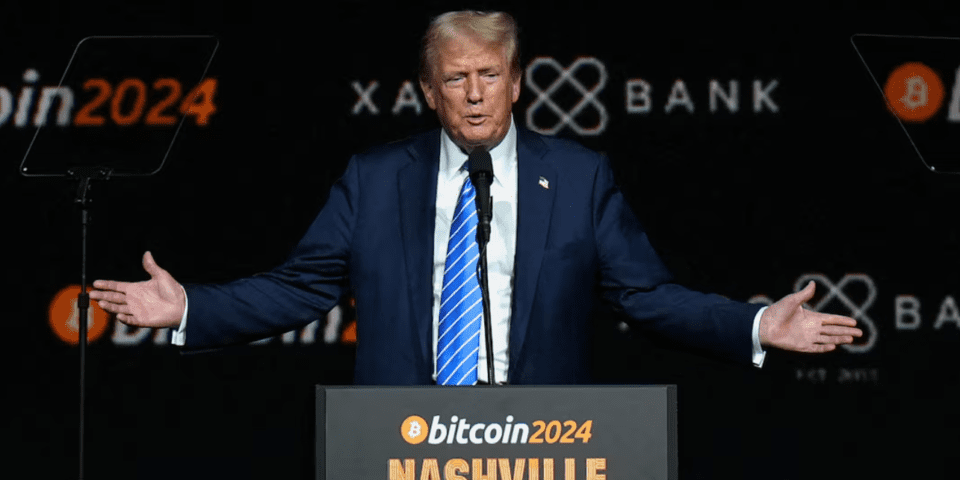BY PAUL O’DONOGHUE, Senior Correspondent
With Donald Trump winning back the White House, what now for cryptocurrencies?
In an effort to clamp down on financial crime, the U.S. has recently been moving towards tighter oversight of digital assets.
Analysis & Opinion, Crypto, Cyber, Insight, Schuman, Tech, Technology

Donald Trump gestures at the Bitcoin 2024 event in Nashville, Tennessee, U.S., July 27, 2024. REUTERS/Kevin Wurm/File Photo
BY PAUL O’DONOGHUE, Senior Correspondent
With Donald Trump winning back the White House, what now for cryptocurrencies?
In an effort to clamp down on financial crime, the U.S. has recently been moving towards tighter oversight of digital assets.